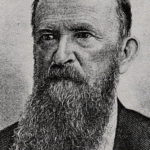Description
STUDIES IN DEUTERONOMY
With Studies For
ELEMENTARY, JUNIORS and
INTERMEDIATES
By
LOUIS ENTZMINGER
2015
Contents
INTRODUCTION 3
FOREWORD 4
I. FROM EGYPT TO THE BORDERS OF CANAAN 6
II. OBEDIENCE AND VICTORY 12
III. INSTRUCTION AND WARNING 19
IV. WARNINGS AND EXHORTATION 28
V. WORSHIP AND WARNING 40
VI. PROVISION FOR A KING 51
VII. VARIED INSTRUCTIONS 59
VIII. “WHEN THOU ART COME INTO THE LAND” 66
IX. THE COVENANT AND CURSE REPEATED 74
X. MOSES’ MESSAGE AND SONG 82
XI. THE BLESSING OF MOSES AND HIS DEATH 90
XII. REVIEW OF THE BOOK OF DEUTERONOMY 96
XIII. REVIEW OF THE PENTATEUCH 99
INTRODUCTION
By DR. W. B. RILEY Minneapolis, Minn.
Mr. Louis Entzminger I regard as the greatest Sunday School man on the American Continent. I have reached this opinion after close observation of his work in other fields, and after two extended engagements of Mr. Entzminger in my own church and Sunday School.
His present undertaking in the form of Bible exposition adapted to Sunday School workers, is at once an important and much needed work. Having examined his production upon Genesis, I hereby express the hope that he may give equal thought, time, and intelligent treatment to the entire Bible. In case he accomplishes that task, he will put over a colossal undertaking, and one that will bring him the gratitude of thousands of Sunday School teachers and scholars.
It has long been my opinion that his exceptional talents should be devoted entirely to the important work of Sunday School teaching, organization, and administration.
W.B. RILEY.
(Dated June 25, 1934)
FOREWORD
DEUTERONOMY is in three main divisions: (1) Moses’ first address, chapters 1 to 4:43; (2) The law, the statutes, exhortations, warnings, blessings, and curses, chapters 4:44 to 30:20; (3) Moses’ farewell message and the vision of the future, chapters 31 to 34. Deuteronomy is not just a mere repetition of what we have found in the preceding books of the Pentateuch. Whether it be in revelation in the Divine Word, or whether in nature, it is fullness, vitality, and design. What we need is Holy Spirit illuminated minds to see and appreciate these things.
THE PLACE: Ch. 1:1 tells of the place where Moses spoke.
THE TIME: ‘The fortieth year,” “eleventh month,” “the first day.” ch. 1:3.
THE SPEAKER: Jehovah through Moses spoke to the children of Israel “according to all that the Lord had given him” ch. 1:1-3.
THE AUDIENCE: The children of Israel, ch. 1:1, 2.
THE SUBJECT MATTER: “According to all the Lord had given him in commandment.” ch. 1:3. “These are the words of the covenant which the Lord commanded Moses to make with the children of Israel in the land of Moab, beside the covenant which he made with them in Horeb.” ch. 29:1. This proves conclusively that Deuteronomy is not a repetition of former books.
VERBAL INSPIRATION IN DEUTERONOMY: “These are the words; not just the thoughts or the idea; but the WORDS. This is stated over and over again in Deuteronomy.
THE EMPHATIC WORD: O-B-E-D-I-E-N-C-E. Ten times in the book it is urged upon the people. They were simply to believe and OBEY; not to argue and reason. When God speaks it is ours to hear and to obey unreservedly. This is the outstanding lesson of Deuteronomy.
I. FROM EGYPT TO THE BORDERS OF CANAAN
Deuteronomy 1.
- WHERE AND WHY MOSES SPEAKS.
Ch. 1:1-5.
- On this side Jordan in the wilderness. v. 1.
- Only eleven days journey from Horeb to Kadesh-barnea. v. 2. It took the children of Israel 40 years – all because of the act of unbelief in Num. 14:33. And lack of faith in God caused their bones to bleach in the wilderness, besides all the grief and heartache it caused. God would have us utterly dependent upon Him, and not upon man. He warns against trusting man. Jer. 17:5, 6. Note the contrast in Jer. 17:7, 8. A warning all should heed. Jer. 17:9. A picture of these 40 years in the wilderness is a good likeness of the life of the average Christian. How slowly we learn! How slowly we travel!
- Moses spoke to the children of Israel according to that the Lord had commanded, v. 3.
(1). Moses gave just what he had received from God: nothing more, nothing less. The “Word of God” is the only thing that will stand.
(2). This is exactly the Apostle Paul’s attitude. I Cor. 2:1-5. Notice also what he says in I Cor., 15:1-4. He “delivered unto you first of all that which I also received.” That and nothing more. This is exactly what the man of God is to do.
(3). Paul commands the Thessalonians that they “receive the Word of God.” I Thess. 2:13.
(4). The confusion in the church of Christ today is caused by the substitution of “‘man’s wisdom for God’s Word.”
(5). Notice the definite detail in the instructions God gives to His people as recorded in Exodus, Leviticus, Numbers, and Deuteronomy. There was not a suggestion or word needed to be added to the words that God spoke. It met their every need and requirement. Even so with the Word of God today. II Tim. 3:16, 17.
(6). The only way all the division and strife among the people of God today can be accounted for is because man’s word and wisdom has been substituted for the Wisdom and Word of God. It is not “the authority of the church” – there is no such thing; not man’s authority; not what science teaches; but WHAT THE WORD OF GOD SAYS.
- “All that the Lord had given him.” v. 3. In Deut. the Lord is seen in direct communication with the people. Very little about the priests in their official capacity; very little about ceremonies.
- THE COMMAND TO POSSESS THE LAND.
Vs. 6-8.
- “Ye have dwelt long enough in this mount” v. 6. Progress is essential for the people of God.
- They are to go into all the places of the Ammorites, the Canaanites, et al, vs. 7, 8. They are to possess the land in a covenant given to Abraham, v. 8.
III. THE APPOINTING OF RULERS.
Vs. 9-18.
- Moses complains of the burden of the people. vs. 9-12. Notice the cause of this burden was “your strife,” v. 12. At this point the devil always gets in his greatest work. STRIFE – ENVY – COMPLAINT. No sooner had Israel finished the Song of Redemption than that kind of thing started with God’s Ancient People. The glorious outpouring of the Holy Spirit upon the church at Pentecost was immediately followed by “murmuring of the Grecians against the Hebrews,” Acts. 6:1. Strife, envy, and disaffection are the things above all others that make the burden of pastoral leadership – or leadership in other responsible positions with the people of God – almost unbearable. Here is where the Devil works constantly and continually.
- The rulers appointed. vs. 13-15. Certainly, if there must be organization, the one adopted is admirable. But let us remember it was not God’s original plan. He permitted it; and directed in it.
- They are to be just and fair. vs. 16-18. They were to hear both small and great; friend and stranger; and “be not afraid of the face of man.”
- THE FAILURE AT KADESH-BARNEA.
Vs. 19-33.
- They went through all that great and terrible wilderness and came to Kadesh-barnea. v. 19.
- They were commanded to go up and possess the land. v. 21. Moses urged them to be not “discouraged.” This word is used considerably. Unbelief and seeing material obstacles are the things mentioned over and over in the Word of God as that which “discouraged.”
- Everyone of them said, “We will send men before us ” v. 22.
- “And the saying pleased me well” v. 23. But mark carefully that this was not the original plan of God; but because of the conditions of the people He allowed this and directed in it – and gave direction for it.
- The land was searched out, and abundant evidence established just what God had said. vs. 22-25.
- “Notwithstanding, ye rebelled against the commandment of the Lord” vs. 26-33. Here we have recited this awful sin of unbelief and its effect.
- GOD’S JUDGMENT UPON THE UNBELIEF OF ISRAEL AT KADESH-BARNEA.
Vs. 34-46.
- The Lord heard and was wroth. v. 34.
- Not one of this evil generation shall see the good land. v. 35.
- Save Caleb and Joshua, vs. 36-39. And the children, whom the people accused God of bringing into the wilderness to destroy, went over into the land.
- “As for you, turn you and take your journey into the wilderness.” v. 40.
- An empty confession, vs. 41-46. To say “We have sinned” and continue in disobedience, is to continue in self-will and without God, and to meet utter defeat. High- sounding phrases and pious words and fine programs, with the name of Christ on them does not put Him in them. To go without Him is to go to utter and dismal defeat and failure. MARK WELL THIS LESSON.
SUGGESTIONS FOR ELEMENTARY AND JUNIOR WORKERS
(The stories suggested for Primaries can be used successfully in the Beginners grades with a little simplification.)
Story for
BEGINNERS AND PRIMARIES
FROM EGYPT TO THE BORDERS OF CANAAN.
- Moses preaches a sermon to his people, v. 1. To all the people in the wilderness (not yet in the land) on this side of Jordan; eleven days journey from Horeb — and they had been wandering around for forty years. Do you remember why?
- What is Moses going to preach about? v. 3. The commandments the Lord had given the people. Just like our preacher today takes the Word of God and tells us what the Lord has commanded for us.
- “Go take the land which l have sworn to give you” vs. 6-8. And had they done it? No, they had grumbled and complained and rebelled until Moses could not bear them alone, vs. 9-18.
- Through a great and terrible wilderness to Kadesh-barnea. vs. 19. To the place God had directed, v. 20.
- The next move should have been to simply take the land as God had said He would help them. v. 21. But what had they done? vs. 22-25. And they didn’t take the land. v. 26.
- They had done even worse! vs. 27, 28. They had accused the Lord of hating them after all He had done for them. And Moses tried to encourage them. But they did not believe the Lord. vs. 32, 33. Even though He had led them all the way. And what had God done? vs. 34-40.
- Then they had disobeyed, vs. 41-44. And after that the Lord would not hear their voice; And left them alone in Kadesh. vs. 45, 46.
Memory verse: Deut. 1:30, “The Lord your God which goeth before you, He shall fight for you.”
JUNIORS AND INTERMEDIATES
RESULTS OF UNBELIEF.
In chapter 1:1, 2, eleven days journey to the Promised Land; they chose rather to trust in themselves and wander and finally all die in the wilderness. (Num. 14:33.) Trust in God – let’s learn that lesson early in life. Jer. 17:7.
(1). Moses spoke to the people all the Lord had given him. I Cor. 15:1-4. Why we teach the Bible instead of literature.
(2). Moses’ failure, v. 2. He was not instructed to “bear them alone.” Contrast with our Burden Bearer (Jesus Christ).
(3). Marching orders, v. 30. We have ours too. Their unbelief and accusation, v. 27. What ingratitude: “the Lord hated them,” after deliverance, bread, and water. OBEDIENCE is an expression of faith, and the way to blessings.
Memory verse: Deut. 1:32.





Reviews
There are no reviews yet.